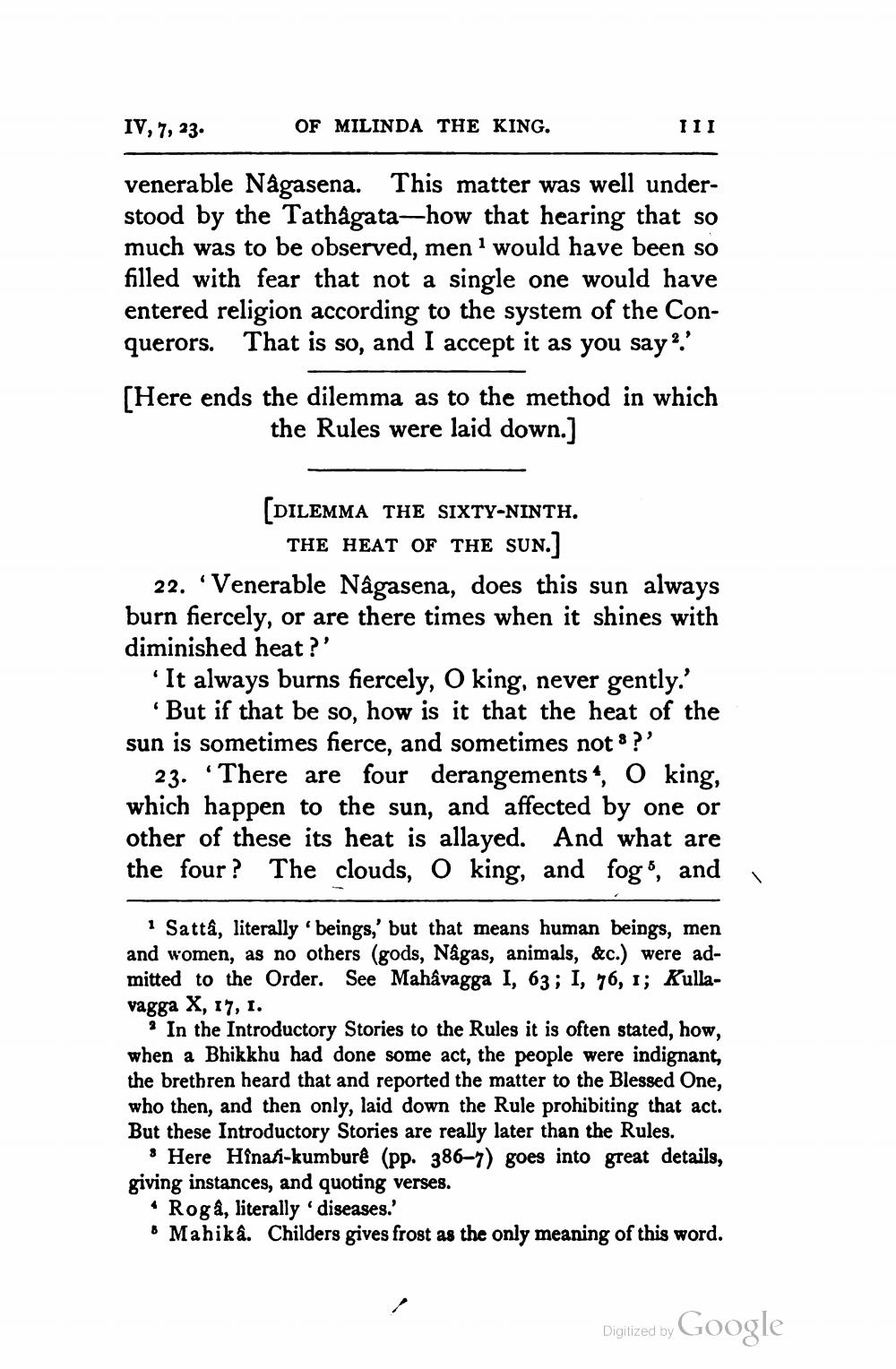________________
IV, 7, 23.
OF MILINDA THE KING.
venerable Nâgasena. This matter was well understood by the Tathagata-how that hearing that so much was to be observed, men 1 would have been so filled with fear that not a single one would have entered religion according to the system of the Conquerors. That is so, and I accept it as you say?'
III
[Here ends the dilemma as to the method in which the Rules were laid down.]
[DILEMMA THE SIXTY-NINTH. THE HEAT OF THE SUN.]
·
22. 'Venerable Nâgasena, does this sun always burn fiercely, or are there times when it shines with diminished heat?'
'It always burns fiercely, O king, never gently.' 'But if that be so, how is it that the heat of the sun is sometimes fierce, and sometimes not?'
23. There are four derangements, O king, which happen to the sun, and affected by one or other of these its heat is allayed. And what are the four? The clouds, O king, and fog, and
1 Sattâ, literally 'beings,' but that means human beings, men and women, as no others (gods, Nâgas, animals, &c.) were admitted to the Order. See Mahâvagga I, 63; I, 76, 1; Kullavagga X, 17, 1.
2 In the Introductory Stories to the Rules it is often stated, how, when a Bhikkhu had done some act, the people were indignant, the brethren heard that and reported the matter to the Blessed One, who then, and then only, laid down the Rule prohibiting that act. But these Introductory Stories are really later than the Rules.
Here Hînai-kumburê (pp. 386-7) goes into great details, giving instances, and quoting verses.
Rogâ, literally 'diseases.'
Mahikâ. Childers gives frost as the only meaning of this word.
Digitized by Google




